After years of international travel, here are our 18 genius tips to prevent jetlag PLUS remedies to fix jetlag if you find yourself suffering!
Whether you’re a seasoned traveler or someone who rarely experiences jet lag, the challenge of aligning your internal circadian clocks with a new time zone is universal.
The disorienting effects of jet lag can disrupt your sleep patterns and leave you grappling with fatigue and other symptoms. If you’ve ever found yourself feeling drowsy and disoriented after crossing multiple time zones, you know the importance of avoiding jet lag.
In this post, we’ll dive into a range of practical strategies for reducing jet lag and provide you with valuable insights to help reset your circadian rhythm. While we can’t provide medical advice, diagnosis, or treatment, we can certainly offer tried-and-true methods that many travelers swear by.
From utilizing light boxes to adjusting your sleep schedule, our goal is to equip you with a sleep solution that works for you, drawing on experience from what has worked for us.
Discover effective techniques for overcoming jet lag when you are traveling west and even when you’re traveling east, a direction known for its potential to disrupt sleep. Learn about the significance of sleep hygiene, the role of natural light exposure, and how to create a sleep-conducive environment using tools like sleeping masks and white noise.
We’ll also touch on the symptoms of jet lag, the effects of jet travel on sleep apnea, and ways to beat jet lag when the time of day is against you. Remember, while we can’t replace the expertise of medical professionals, we are here to help you make informed decisions about your sleep patterns and travel experiences.
So, if jet lag hits you hard or you’re a jet lag veteran seeking new remedies, read on to arm yourself with valuable strategies to conquer time zones and embrace your journeys with newfound energy.
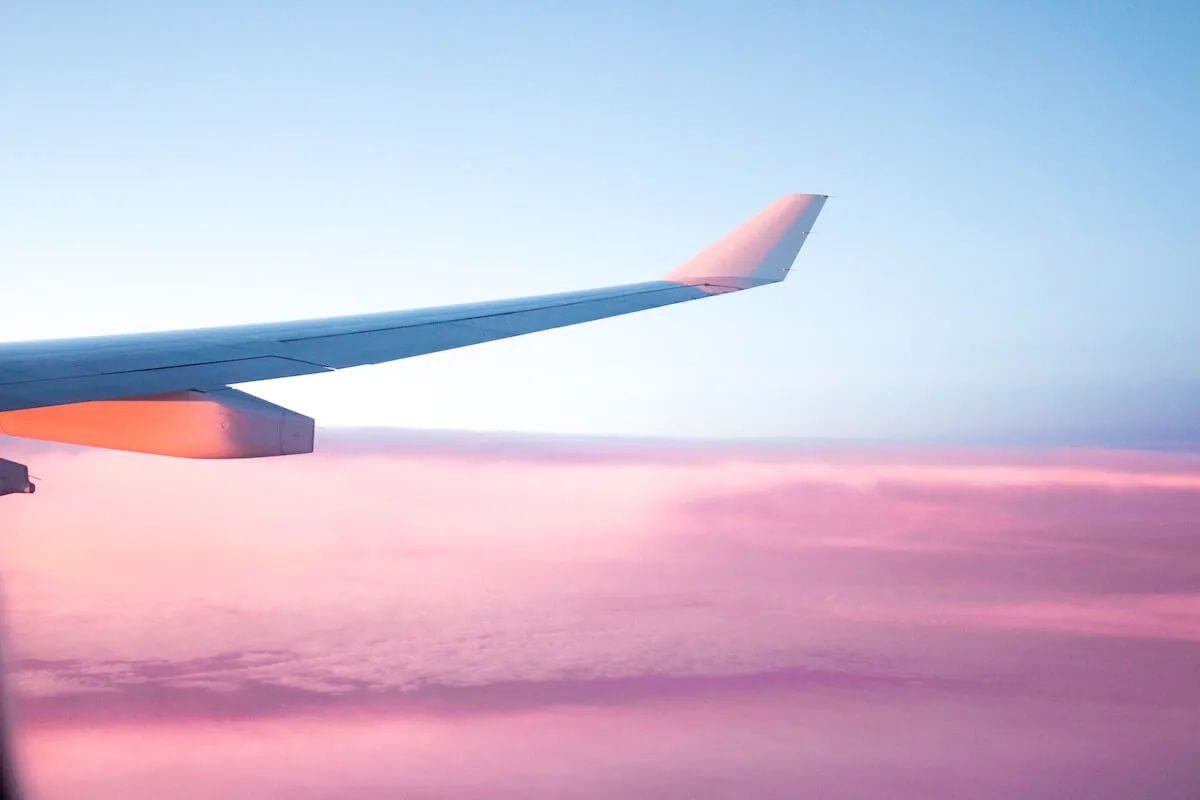 Disclaimer & Affiliate Disclosure: Almost all posts on this site contain affiliate links, and this travel guide containing Genius Tips to Prevent Jetlag featuring remedies for jetlag is no different. This means that if you click on any of the links in this post (and make a purchase) I may receive a small commission at no extra cost to you. Each post is carefully crafted to (hopefully!) answer all your questions and recommendations are made where we believe they will improve your trip and help with your planning. As such we thank you in advance should you decide to click & buy. Read my full Disclosure here.
Disclaimer & Affiliate Disclosure: Almost all posts on this site contain affiliate links, and this travel guide containing Genius Tips to Prevent Jetlag featuring remedies for jetlag is no different. This means that if you click on any of the links in this post (and make a purchase) I may receive a small commission at no extra cost to you. Each post is carefully crafted to (hopefully!) answer all your questions and recommendations are made where we believe they will improve your trip and help with your planning. As such we thank you in advance should you decide to click & buy. Read my full Disclosure here.
Top Jetlag Tips: How to Prevent Jetlag
Jetlag, the disruptive aftermath of traversing time zones, can wreak havoc on our internal body clocks, causing an array of distressing symptoms. To ensure you arrive at your destination feeling refreshed and ready, consider these comprehensive travel tips that revolve around synchronizing your circadian rhythms with the local time.
Before you go: Leave Home Well Rested
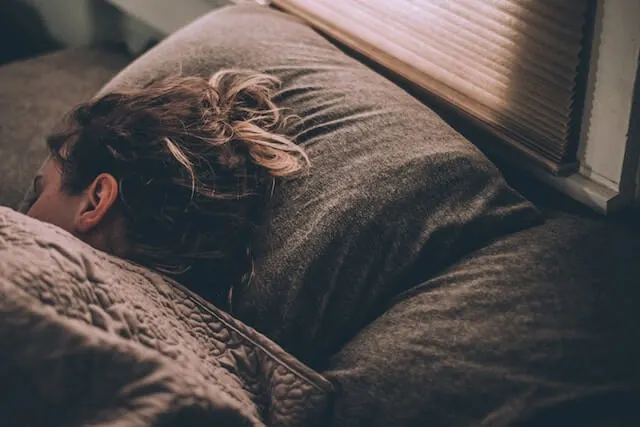 Avoid leaving in a rush after a late night or a party – sleep deprivation is not a good start to long haul international travel.
Avoid leaving in a rush after a late night or a party – sleep deprivation is not a good start to long haul international travel.
Plan as if departing two days earlier to ensure a healthy start and get a good 7-9 hours of sleep each night. Keep the final 48 hours calm before your real departure. This ensures a peaceful flight, ready to embrace your adventure fully.
Use the Flight to Rest & Reset
Utilize in-flight time for naps. Sleep on the ‘night time’ portion of your long haul journey will go a long way to helping you remain functional upon arrival. On the final leg of your journey, change your watch to the time it is where you will land. This will help you get your head around when to sleep/eat etc. Also, stop checking what time it is back home, especially after you arrive.
Enhance Comfort with Eye Masks, Earplugs, and a Travel Pillow
Creating a comfortable sleep environment is crucial, especially when you’re dealing with unfamiliar lighting and noise levels. An eye mask can help block out unwanted light, while earplugs can reduce ambient noise, both contributing to a more restful night’s sleep. (This goes for both on the plane and off it!)
Gradual Adjustment: Ease Yourself into New Time Zones
One of the most effective strategies to avoid jetlag is to gradually adjust your sleep schedule a few days before your journey. Begin shifting your bedtime and wake-up time closer to those of your destination’s local time. This incremental adaptation primes your body for the upcoming time zone change, minimizing the shock to your internal clocks.

Use Apps to Help You Move Between Time Zones
- Timeshifter: This app creates personalized plans to minimize jetlag based on your travel details, sleep patterns, and preferences. It offers advice on when to seek or avoid light, take naps, and consume caffeine. It’s great for shift work, too!
- Jet Lag Rooster: Jet Lag Rooster generates a schedule to gradually adjust your sleep patterns before and after your trip. It uses scientific algorithms to optimize your sleep and light exposure based on your travel itinerary.
- Entrain: Developed by researchers, Entrain offers a similar service, providing schedules to help your body adjust to new time zones using light exposure and sleep timing.
- Sleep Cycle: This app tracks your sleep patterns and wakes you up during your lightest sleep phase, making waking up more pleasant. It can help you adjust to a new time zone more smoothly.
When Transitioning Time Zones: Swiftly Embrace the Local Time
 The moment you arrive, make an immediate switch to the local time zone. Engage in activities, meals, and sleep according to the new schedule. This quick alignment sends a powerful signal to your body’s circadian rhythms, aiding in the faster adjustment to the local time zone.
The moment you arrive, make an immediate switch to the local time zone. Engage in activities, meals, and sleep according to the new schedule. This quick alignment sends a powerful signal to your body’s circadian rhythms, aiding in the faster adjustment to the local time zone.
Strategic Travel Planning: Timing Matters
If feasible, select flights that arrive at your destination during the daytime – and preferably before 2pm. This strategic choice helps align your body’s internal clocks with the local time, making it easier to transition and adjust to the new schedule, while giving you a few hours in your new timezone to acclimatize and exhaust yourself sightseeing ready for a natural bedtime (at the earliest of 9pm!)
If your flight is due to arrive at night, try to stay awake for your whole flight, to ensure you are tired at a natural bedtime in your final destination.
Get Outside (i.e. Harnessing Light Exposure: Nature’s Timekeeper)
 Natural light is a potent tool for regulating your internal clocks. Spend ample time outdoors during daylight hours, particularly in the morning, to stimulate your body’s circadian rhythm. The exposure to natural light helps recalibrate your sleep-wake cycle and promotes the release of wakefulness-promoting hormones, further facilitating your transition to the local time zone.
Natural light is a potent tool for regulating your internal clocks. Spend ample time outdoors during daylight hours, particularly in the morning, to stimulate your body’s circadian rhythm. The exposure to natural light helps recalibrate your sleep-wake cycle and promotes the release of wakefulness-promoting hormones, further facilitating your transition to the local time zone.
Embrace Light Physical Activity
 Engaging in light physical activity upon arrival, such as a brisk walk or gentle stretching, can help jumpstart your metabolism and signal to your body that it’s time to be awake. If you’re going on vacation, this should be easy to do as you’ll be excited to get out and start sightseeing and exploring and there’s no better way to kick jetlag.
Engaging in light physical activity upon arrival, such as a brisk walk or gentle stretching, can help jumpstart your metabolism and signal to your body that it’s time to be awake. If you’re going on vacation, this should be easy to do as you’ll be excited to get out and start sightseeing and exploring and there’s no better way to kick jetlag.
Adapt Your Meals: Eat in Tune with the Locale
 In addition to the above, be sure to adjust your eating schedule to match the local meal times. This helps synchronize your digestive system with the local time zone, aiding in your body’s overall adjustment.
In addition to the above, be sure to adjust your eating schedule to match the local meal times. This helps synchronize your digestive system with the local time zone, aiding in your body’s overall adjustment.
Be aware of Artificial and Blue Light at Night
 As daylight dwindles, steer clear of intense artificial light sources, as they can hinder the production of melatonin, a hormone that aids sleep. Reduce exposure to screens emitting blue light, such as phones and computers, in the hours leading up to bedtime. Dimming the lights in your surroundings can signal to your body that it’s time to wind down and prepare for rest.
As daylight dwindles, steer clear of intense artificial light sources, as they can hinder the production of melatonin, a hormone that aids sleep. Reduce exposure to screens emitting blue light, such as phones and computers, in the hours leading up to bedtime. Dimming the lights in your surroundings can signal to your body that it’s time to wind down and prepare for rest.
Prioritize Sleep Hygiene by Crafting a Sleep-Conducive Environment
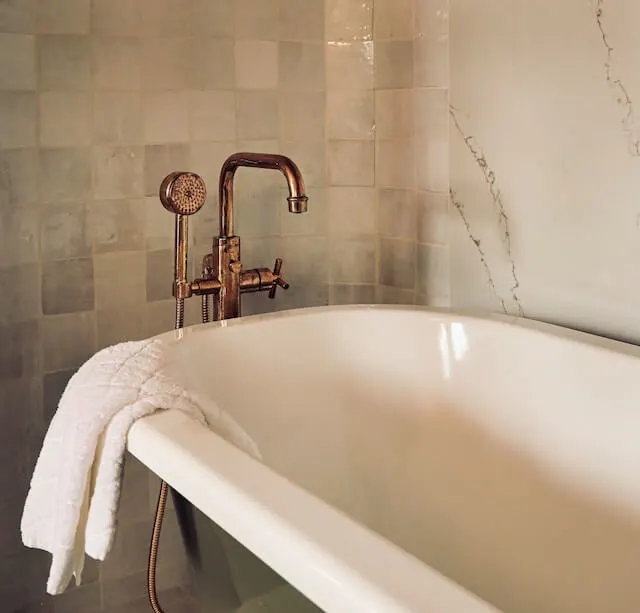 Maintaining a sleep-conducive environment is paramount to reducing the effects of jetlag. Ensure your sleeping space is comfortable, quiet, and cool. Avoid consuming heavy meals close to bedtime, as digestion can disrupt your sleep. Engage in soothing activities like reading, gentle stretches, or a warm bath to help ease into slumber.
Maintaining a sleep-conducive environment is paramount to reducing the effects of jetlag. Ensure your sleeping space is comfortable, quiet, and cool. Avoid consuming heavy meals close to bedtime, as digestion can disrupt your sleep. Engage in soothing activities like reading, gentle stretches, or a warm bath to help ease into slumber.
Strategic Napping: Energizing without Disruption

(While, in some cases, naps are good – napping in public is not!)
While short naps can be refreshing, excessively long naps during the day might hinder your ability to fall asleep at night. If your flight arrives in the early morning, and you haven’t managed to get a lot of sleep on your flight, and you don’t think you can make it through to 9pm – a short nap may be the answer.
Opt for naps lasting around 20-30 minutes to recharge without interfering with your nighttime sleep schedule. These short breaks can help alleviate fatigue without jeopardizing your circadian adjustment.
Stay Hydrated: Water is your Ally
 Dehydration can exacerbate the symptoms of jetlag, making it essential to maintain proper hydration throughout your journey and upon arrival. Drink water regularly and limit caffeine and alcohol consumption, as these substances can disrupt your sleep-wake cycle and contribute to dehydration.
Dehydration can exacerbate the symptoms of jetlag, making it essential to maintain proper hydration throughout your journey and upon arrival. Drink water regularly and limit caffeine and alcohol consumption, as these substances can disrupt your sleep-wake cycle and contribute to dehydration.
For those who don’t want to be getting up and going to the bathroom on the plane every 20 minutes (I know I don’t) – consider adding some liquid IV or hydralyte to your personal plane care pack. These tablets or sachets can help replace your body’s lost electrolytes and keep you hydrated with a smaller volume of water.
Mindful Consumption of Caffeine and Alcohol in Moderation
 Limit your consumption of caffeine and alcohol, particularly in the hours leading up to bedtime. These substances can disrupt your sleep quality and make it more challenging for your body to adapt to the new local time zone.
Limit your consumption of caffeine and alcohol, particularly in the hours leading up to bedtime. These substances can disrupt your sleep quality and make it more challenging for your body to adapt to the new local time zone.
Be Cautious with Sleep Aids and Pills
Approach sleeping pills and over-the-counter sleep aids cautiously. It’s recommended to avoid them unless prescribed by a healthcare professional. These substances can sometimes interfere with your body’s natural ability to adapt to the new time zone, making it harder for your internal clocks to synchronize.
If Planning to use Melatonin Supplements – Seeking Professional Guidance
Consult a healthcare professional before considering melatonin supplements. In some cases, they might be recommended to help reset your sleep-wake cycle. A dosage of 0.5 to 5 mg of melatonin, taken a few hours before bedtime, might be effective in aiding your adjustment to the new time zone.
Stay Positive and Patient: Time as Your Ally
Overcoming jetlag requires patience and a positive mindset. Understand that adjusting to a new time zone takes time, and your body will gradually acclimate. Stay optimistic, and give yourself the grace to adapt at your own pace.
Remedies for Jetlag (How to Fix Jetlag Once You Arrive)
If you found this post by looking for ‘How to fix Jetlag’ or ‘Remedies for Jetlag’ we do have some top tips to help you do just that. But eagle-eyed viewers may notice they are extremely similar to the ways to prevent jetlag discussed above.
That’s because, at the end of the day, there is no magic cure for jetlag, and the tips to prevent it go hand and hand with the remedies to ‘fix jetlag’ – or at least suffer from the effects for as short a time as possible.
Stay Active, Get Outside, and Soak in some Sunlight
 Engage in light physical activity and spend time outdoors during the daylight hours. Sunlight exposure helps regulate your body’s internal clock, signaling that it’s time to be awake and alert.
Engage in light physical activity and spend time outdoors during the daylight hours. Sunlight exposure helps regulate your body’s internal clock, signaling that it’s time to be awake and alert.
Hydrate and Nourish
 Drink plenty of water to stay hydrated and support your body’s recovery. Opt for light, nutritious meals that align with the local meal times to help reset your digestive system. For example, if you land early in the day, have breakfast (even if you are not hungry!)
Drink plenty of water to stay hydrated and support your body’s recovery. Opt for light, nutritious meals that align with the local meal times to help reset your digestive system. For example, if you land early in the day, have breakfast (even if you are not hungry!)
Strategic Napping
If you’re feeling extremely fatigued, take a short nap of around 20-30 minutes. Avoid long naps, which can interfere with nighttime sleep.
As we mentioned above we only really recommend napping if you arrived early in the morning, and could fit in a short nap before midday. Napping any later is likely to mess with your circadian rhythm more, and prevent you from getting a good night’s sleep later.
Gradual Sleep Adjustment
If possible, adjust your sleep schedule by going to bed and waking up slightly earlier or later each day until you’re in sync with the local time zone.
Avoid Caffeine and Alcohol:
 Limit caffeine intake, especially in the afternoon, as it can disrupt your ability to fall asleep. Similarly, avoid alcohol close to bedtime, as it can negatively impact your sleep quality.
Limit caffeine intake, especially in the afternoon, as it can disrupt your ability to fall asleep. Similarly, avoid alcohol close to bedtime, as it can negatively impact your sleep quality.
Use Relaxation Techniques:
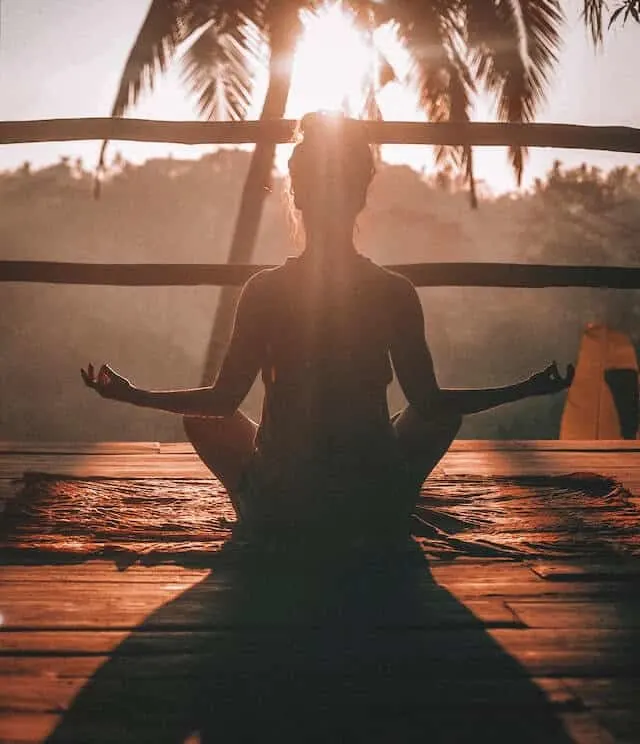 Practice relaxation techniques such as deep breathing, meditation, gentle yoga, or a warm bath (my favorite) before bedtime. These techniques can help calm your mind and facilitate better sleep.
Practice relaxation techniques such as deep breathing, meditation, gentle yoga, or a warm bath (my favorite) before bedtime. These techniques can help calm your mind and facilitate better sleep.
Limit Screen Time at Night:
Reduce exposure to screens such as phones, tablets, and computers in the hours leading up to bedtime. The blue light emitted by screens can interfere with your body’s production of melatonin.
Use Sleep Aids Wisely
If necessary, consider using over-the-counter sleep aids or prescribed medications. Use them judiciously and under the guidance of a healthcare professional (this includes melatonin)
Stay Positive and Patient
Give yourself time to adjust and stay patient. Jetlag symptoms typically improve within a few days as your body adapts to the new time zone.
Frequently Asked Questions about Jetlag
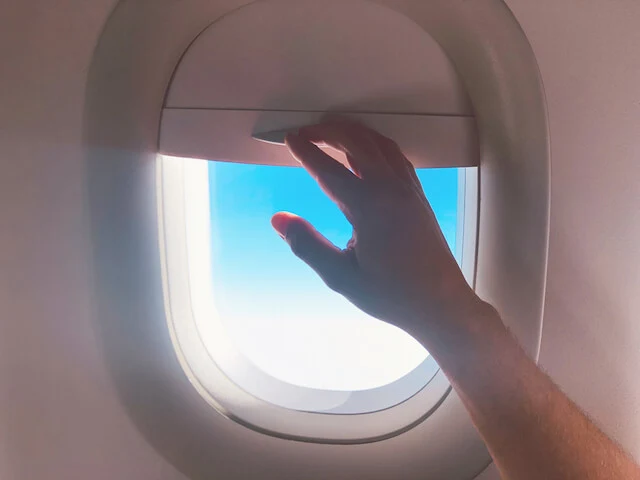
What is the Definition of Jetlag?
Jetlag, also known as desynchronosis, is a temporary disruption of the body’s internal biological clock (circadian rhythm) caused by rapid travel across multiple time zones. It results in symptoms like fatigue, sleep disturbances, and decreased cognitive function.
Where was the first mention of Jetlag?
Horace Sutton coined the phrase in an LA Time article published on 13 February 1966, when he said:
“If you’re going to be a member of the Jet Set and fly off to Katmandu for coffee with King Mahendra, you can count on contracting Jet Lag, a debility not unakin to a hangover. Jet Lag derives from the simple fact that jets travel so fast they leave your body rhythms behind.”
What Causes Jetlag?
Jetlag is primarily caused by the misalignment between the body’s internal clock and the external time at the destination and is a chronobiological problem.
Rapid travel through different time zones disturbs the body’s sleep-wake cycle, meal times, and hormone release patterns, leading to the characteristic symptoms of jetlag.

Is There Medicine for Jetlag?
There is no specific medicine that can completely prevent or cure jetlag. However, some over-the-counter sleep aids or melatonin supplements might be used to help adjust sleep patterns. Consultation with a healthcare professional is recommended before using any medication.
What are Common Jetlag Symptoms?
Common symptoms of jetlag include
- fatigue;
- difficulty falling asleep or staying asleep;
- daytime sleepiness;
- irritability;
- difficulty concentrating;
- brain fog;
- impaired coordination;
- appetite loss;
- feeling hungry at odd times;
- digestive disturbances; and
- general malaise.
Is there a link between Jetlag and Sleep Apnea?
Jetlag and sleep apnea have the potential to exacerbate each other’s effects. Jetlag can disrupt sleep patterns, and individuals with sleep apnea already experience interrupted breathing during sleep.
As such, jetlag-induced fatigue might worsen sleep apnea symptoms, while sleep apnea can intensify jetlag symptoms due to poor sleep quality. Proper sleep management is crucial for minimizing their combined impact.
Is there a link between Jetlag and Asthma or Allergies?
While there isn’t a direct causal link between jetlag and asthma or allergies, jetlag can potentially influence these conditions indirectly.
Jetlag disrupts sleep patterns and weakens the immune system, which might make individuals more susceptible to asthma or allergy triggers. Additionally, traveling to new environments with different allergens could exacerbate allergy symptoms.
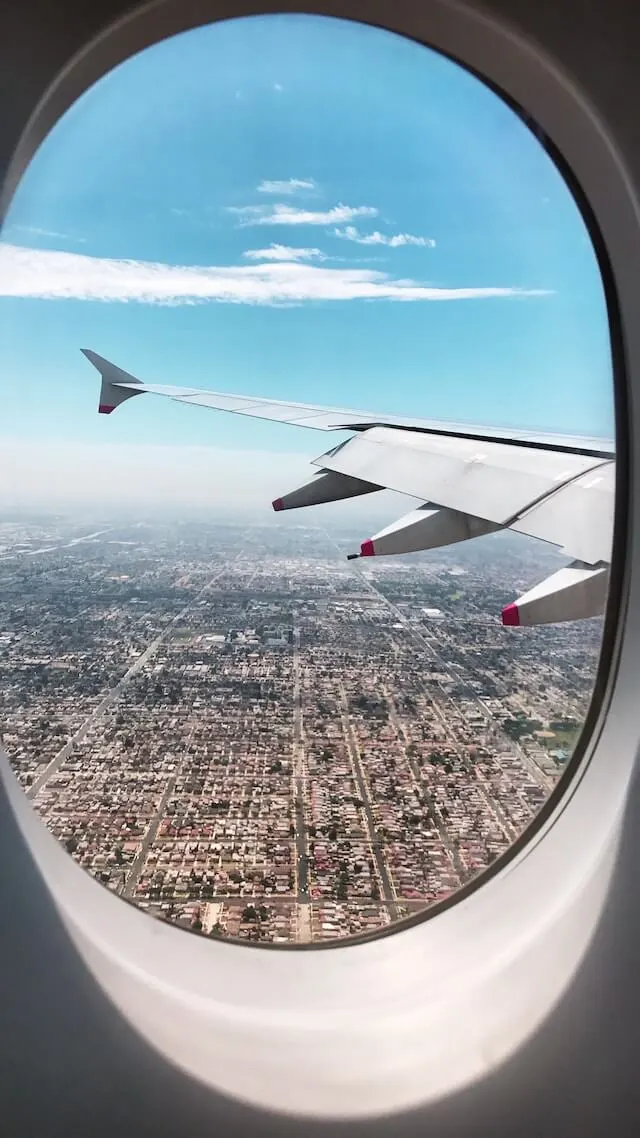
What are Common Remedies for Jetlag?
To alleviate jetlag symptoms, consider these remedies:
- Gradual Adjustment: Start adjusting your sleep schedule before you travel, shifting it closer to the destination’s time zone.
- Sunlight Exposure: Spend time in natural sunlight at your destination to help reset your body’s internal clock.
- Stay Hydrated: Drink plenty of water and avoid excessive alcohol and caffeine intake.
- Naps and Sleep: Take strategic short naps to combat fatigue, but avoid long naps that might disrupt nighttime sleep.
- Melatonin: Consider using melatonin supplements under medical guidance to help regulate sleep patterns.
- Healthy Diet: Eat light, balanced meals at appropriate local times to support your body’s adjustment.
- Stay Active: Engage in light physical activity upon arrival to help regulate your body’s internal clock.
- Use Light Therapy Boxes: Use light therapy boxes emitting bright light, especially in the morning, to stimulate wakefulness and reset your internal clock.
Remember that individual responses to jetlag remedies can vary, and it might take a few days for your body to fully adjust to the new time zone.
And that’s a wrap – our top tips to prevent jetlag, and remedies to fix jetlag if you are struggling in your destination. We hope you have found this guide helpful, and if so – or you know someone who will be traveling long haul soon – please share it. We really appreciate it.
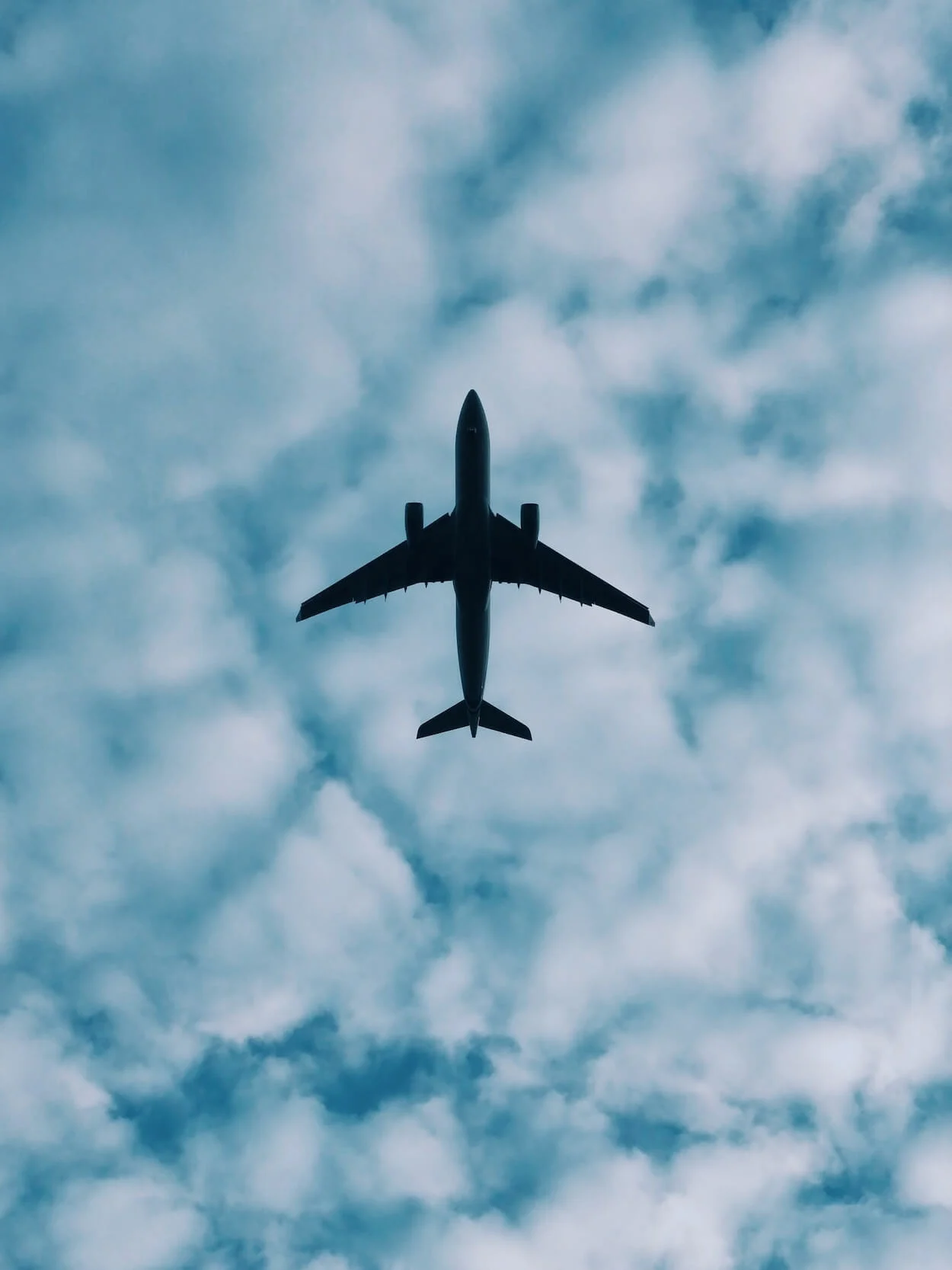
And if you liked our guide to the top tips to prevent jetlag including remedies for jetlag, take a look at the other recent posts, packing tips, travel accessories, travel resources, travel guides, ultimate guides, and packing lists in this series:
- Group Tours: See more in less time – the Best Group Tours on Every Continent
- Europe: Rome Travel Guide for First-Timers, Guide to Barcelona for First Time Visitors & The Best Places to Visit in Spain
- Amazing Africa: Check out the Best Places To Visit in Africa and start exploring this incredible continent – or just watch the Best Movies About Africa and get your armchair travel on!
- Festivals: Festival Fan? You’ll love these Incredible Festivals From Around the World
- Be Prepared: The Best Carry On For Travel (tested on most airlines!) PLUS the best passport wallets & 40 Insanely Useful Backpacking Essentials to make sure you have everything you need once you’ve been inspired by our inspiration quote series!
Hi There! Thanks for reading my travel tips for the TOP Tips to Prevent Jetlag I just wanted to let you know that this post may contain affiliate links, which means if you purchase something after clicking a link, I may get a small commission – which is at absolutely no cost to you. If you enjoyed this article and are going to be searching for some of the things I mention anyway, I would love it if you could click through from the links above & thank you ahead of time! Read my full disclosure here. And thank you for reading the MakeTimeToSeeTheWorld travel blog.




